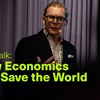helping
Agent-Based Modeling and Techno-Social Systems
Advances in Complex Systems, Vol. 16, Nos. 4 & 5, World Scientific Publishing Company. DOI: 10.1142/S0219525913030021

Stefan Schubert
My research in recent years has focused on effective altruism, and in particular the question of why most people are not more effective when helping others. Lucius Caviola and I have recently compiled (Oxford University Press, Open Access).
Archives of/as resistance: On the justice potential of eyewitness image records documenting the Syrian conflict
Media, Culture & Society Abstract What are the new possibilities of enacting justice through the vast archives of digital eyewitness images and self-representations produced since 2011 by the grassr

How economics can save the world
Book launch for How Economics Can Save the World (Penguin, 2023) by Erik Angner, professor of practical philosophy and PhD in economics. Economics has always been shadowed by a movement that has been c

Niels Selling
I am a researcher at the Institute for Futures Studies, an adjunct associate professor at Linköping University, and an adjunct professor at IESEG School of Management. I am a mixed-methods researcher w
New report on the effects of projects financed by the European Social Fund
The European Social Fund (ESF) aims to be more successful in helping people to get a job than Arbetsförmedlingen. The Institute for Futures Studies has studied the results of a variety of projects and

Success factors for effective labour market projects
Success factors for effective labour market projects. A comparative study of fifteen Social Fund financed projects.Research report 2014/7, 96 p. For decades, the Swedish municipalities have had a major
Krister Bykvist: Moral uncertainty
Professor in Practical Philosophy at the Department of Philosophy, Stockholm University and Institute for Futures Studies. ABSTRACT How important is the wellbeing of non-human animals compared to the we
Book talk: How Economics Can Save the World
Economics has always been shadowed by a movement called "anti-economics", denouncing its practitioners, attacking its assumptions, rejecting its conclusions, and protesting its influence. In his book H
Still heating: Unfolding a typology of climate obstruction
In N. Marschner, C. Richter, J. Patz, & A. Salheiser (Eds.), Contested climate justice – Challenged democracy: International perspectives (pp. 59-71). Campus Verlag GmbH Abstract Earth is on a catastryet, there is little sign of halting the rise of global greenhouse gas emissions orstopping the extraction of fossil fuels. Against this background, in this articlewe re-engage with a recently proposed typology supposed to cover three modesthrough which effective climate action has been obstructed. These are, first,primary obstruction, that is, the spread of disinformation and/or denying the veryexistence of anthropogenic climate change. Second, secondary obstruction concernsmore or less deliberate obstruction via opposition to climate action and policiesvia, for example, reference to “the threat of deindustrialisation”. Finally, tertiaryobstruction denotes modes of living which, while not necessarily obstructingeffective climate change intentionally, concerns “living in denial”. Drawing onrecent research and examples, we revisit this typology.








